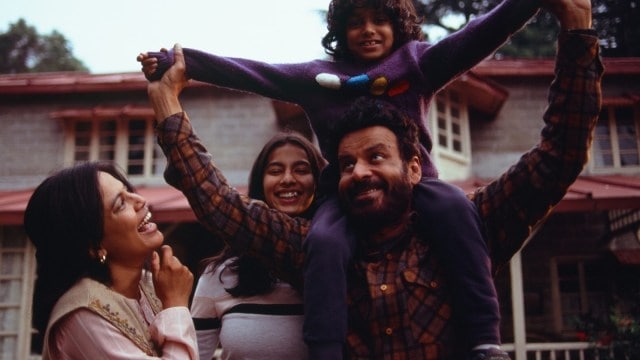
Indian cinema has always carried a paradox. On the one hand, it thrives on spectacle — song, dance, colour, and drama that overwhelm the senses. On the other, it harbours a quieter tradition: Films that refuse noise, that slip into the folds of allegory and fable to say something sharper about who we are. Jugnuma: The Fable, Raam Reddy’s new feature starring Manoj Bajpayee, belongs firmly to the latter category.
At first glance, its story seems deceptively simple. Dev, a landowner in the Himalayan foothills, tends to his apple orchards even as wildfires creep closer. The villagers whisper about nomadic horsemen. His wife, Nandini, struggles with his growing detachment. Dev busies himself with an odd, quixotic invention: Wings that he hopes will lift him away from despair. Around them, lullabies, folktales, and whispers of myth form a quiet chorus.
At the heart of the film is the orchard. It is livelihood, legacy, and contested terrain. Land in India has never been neutral. It is bound up with caste hierarchies, inheritance disputes, and the fraught politics of displacement. In recent years, debates on land acquisition, mining leases, and industrial corridors have exposed the cracks in India’s development model. Farmers’ protests reminded the nation that land is not just an economic asset but a lifeline, an identity. Jugnuma distils these debates into allegory. The orchard burns, not only because of climate, but because the ownership of land itself is always under fire. Dev, as landowner, is complicit in this structure even as he mourns its loss. His wings symbolise the elite’s desire to escape responsibility. In this sense, Reddy’s fable is a critique of privilege.
Any parable risks floating away into abstraction. What anchors Jugnuma is Bajpayee’s performance. He chooses restraint. Dev is often silent, absorbed in thought, his glances unfinished, his gestures hesitant. It is in these silences that the film’s political power lies. They remind us that despair is an active force, shaping how communities fracture, dreams turn brittle, how escape becomes more tempting than confrontation. Bajpayee embodies this with rare precision, making Dev a mirror of our times: Conflicted, complicit, and longing.
Indian cinema’s international image remains polarised: Bollywood extravagance on one side, Satyajit Ray’s realist humanism on the other. Jugnuma belongs to neither camp. It leans closer to auteurs like Andrei Tarkovsky or Apichatpong Weerasethakul, who use dreamscapes and myth to ask unsettling questions. This makes Jugnuma significant not just as a film but as a cultural intervention.
What, then, does Jugnuma offer us in 2025? It offers a mirror to our burning landscapes — from Uttarakhand’s forests to the fields scorched by heatwaves. It warns us about the ease with which communities fracture under fear. It insists that stories, myths, and fables are not relics but living strategies of resistance. And it asks us to question privilege: Who owns the orchard, who labours on it, and who burns when fire comes?
In an era where politics often promises certainty but delivers only crisis, Jugnuma is radical in its refusal to provide closure. It does not tell us how to stop the fire. It only makes us sit with the smoke, the silence, and the fireflie. For Indian cinema, that is no small achievement. For Indian society, it is a reminder we cannot afford to ignore.
The writer is a theatre actor, filmmaker and film producer